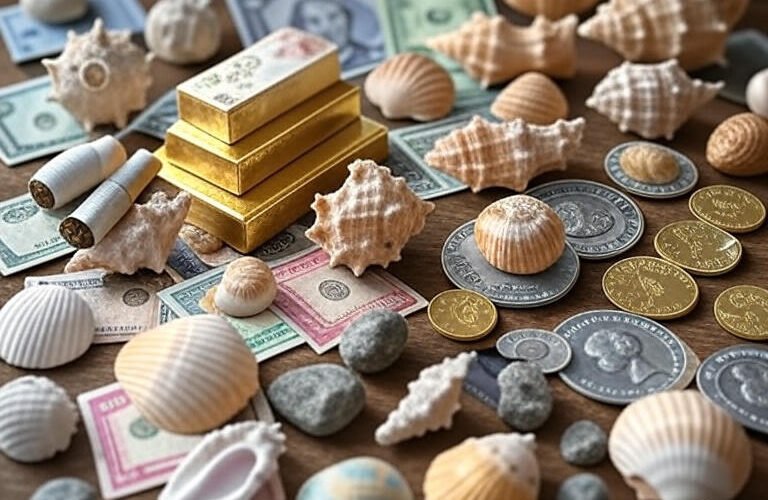By Nate Novosel
Money is an interesting concept. If you’re reading this, you probably know the three fundamentals of currency:
- Store of Value – It holds the value of your work and output in a credit system that allows you to redeem that value for future goods and services provided by others.
- Medium of Exchange – It acts as a means to trade with another person where the two of you don’t provide things that the other directly needs in a comparable amount.
- Unit of Account – It allows you to quantify multiple goods with the same accounting system so that you can calculate how much you will get for your output and how much you need for someone else’s.
But let’s go beyond the theory and into the pragmatic applications of these ideas. First, you need things to survive: food, water, shelter, etc. Second, you are more effective at some activities required to live than others. Third, other people in society are more willing and able to do those activities for you. Fourth, you are neither friends nor family with those other people, so you don’t know whether you can trust the other person to reciprocate in a fair way the things you need for the things they need.
Enter money. I can get a bucket of water for myself from the well, or I can get a bucket of water for hundreds of people from the well, and they credit me for it. How do we measure that credit? Currency (e.g., dollars and cents). I provide the good or service, and they credit me for it. When I need a good or service from someone else because it’s inconvenient or impossible for me to do it (for) myself, I give that credit to someone else by handing them that money. And thus, we have a more functioning society.
So, if money is the solution to the problem of friction regarding the exchange of goods and services, what new problem(s) does money introduce? Well, it turns out…plenty.
🔥 25 unlocks and counting...

Such a great article that explains why we need money, the problems with our current form of money, and the problems that eCash is solving for. Thanks for writing Nate!
“You kind of become numb to the day-to-day when you know you’re in it for the long run.” 🔥🔥🔥
That’s so true. I outlined what I wanted to achieve from the project and outlined the time frame I expect that to happen in (how else can one quantify success and failure?) — my time frame is in decades. but ever since I did that I progressively became numb to the day-to-day.
E g this recent pump didn’t excite me. The dump that got us to all time lows didn’t also sting me.
I think I’m on the healthy side of the “numb” because I have found myself closely watching out for developments.
Anything that improves the probability of bringing my expectation from the project to reality excites me, things like – more inclusivity ( new listings), new products ( blitz, agora, xecx, firma), devs building etc.
The opposite of the above, if they ever occur I think I’ll be stung.
Also, on inflation. I personally desire ecash to work out. Did a little maths the other day and discovered in my motherland, the local currency has devalued > 150,000% between the space of time of my dads birth and today.
I tried searching for present rate of inflation, the government puts it on 10-30% but in reality it’s closer to 70-100%+. It makes you wonder how can financial freedom ever become tangible to such a geopolitical zone?
The world sincerely needs healthy money. Bitcoin had a chance but it has been highjacked by the same forces we were running from. Hopefully ecash lives up to the task.
Great article, I enjoyed it!!
Have a great week ahead.
A quality article, Nate. So much to digest. Thanks for putting in the thought and time to compose such an in-depth piece.
Great article.
I like the ecash community more and more. It resembles a lot with the original bitcoin community.